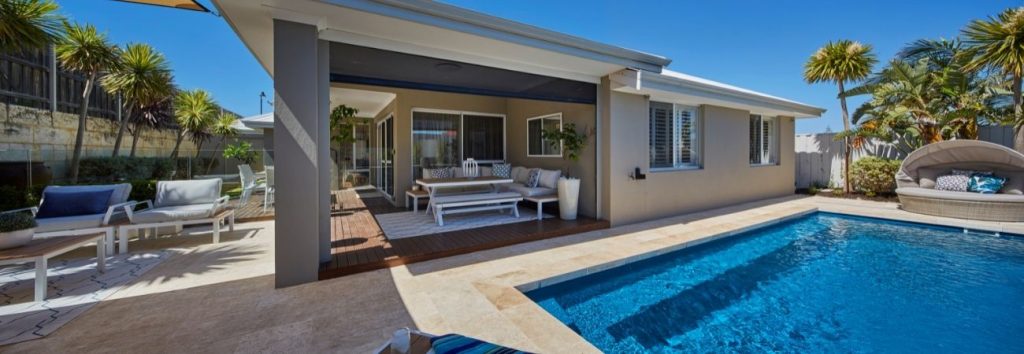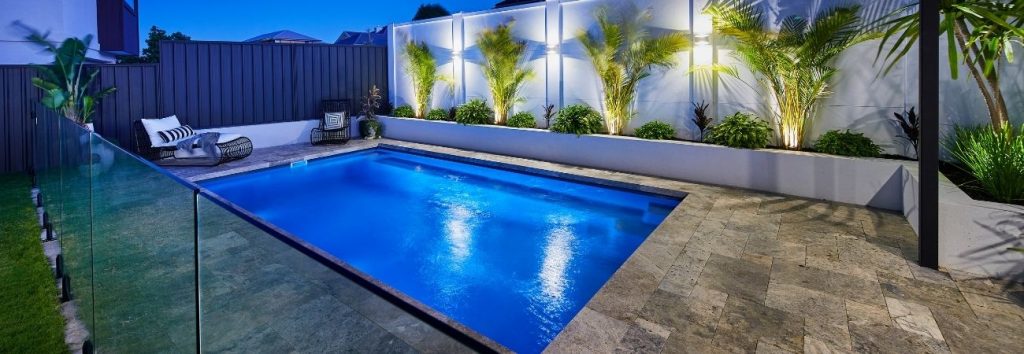A pool is a great place to make memories and happens to be a great investment for your property too. It raises its value considerably if you decide to sell it in the future. This summertime amenity has been highly in demand for a few years, and having one in your backyard makes your house a lot more valuable.

But all these summertime plans can be put to a halt all thanks to the rains. A heavy downpour can easily mess with the chemical balance of the pool and can lead to several problems along the way. As the rain is formed when the water evaporates from the ground, it leaves a lot of chemicals behind.
As this rain falls from above, the water falling down mixes with a lot of chemicals and various other contaminants. These can include things like pollen, spores, phosphates, or dust that are always present in the atmosphere.
When these rains fall down on the pool, you get a lot of additional water in your pool, and due to this, the chemical balance is also disturbed. If there is a lot of water entering the pool in a short amount of time, your skimmer can stop functioning together. Small debris like leaves, twigs, and bugs can gather at the bottom of the pool if left unattended for a long time. When it rains, you should immediately backwash the filter.
What rain can do to your pool
pH Changes
When the raindrops start their journey in the clouds, they are neutral on the litmus test.
Rated at 7, these raindrops, while coming down, mix with a lot of contaminants along the way. A low pH rain can easily disrupt the pH of your pool which only leads to more problems. This only happens when the downpour continues for a few days.
Whether it be acid rain or just plain rain in general, you will have to increase the pH of the pool. Acid rain absorbs the carbonic acid and the sulfuric acid that is present in the atmosphere. The rain itself might not be very corrosive but is acidic enough to upset the pH balance of your pool.
With acid rains, you have no choice but to increase the pH of your pool.

Alkalinity
The Total Alkalinity of your pool goes down as it continues to rain. In this case, you will have to raise the alkalinity of the pool. While the Total Alkalinity of the rainwater itself is next to zero, a heavy downpour can lower it by 5-10ppm every day.
Low alkalinity combined with low pH can create a very hostile environment for the pool’s ecosystem as a whole. It will become highly corrosive and will react to all the metal in and around the pool. Parts like ladders and pipes are at a high risk of damage in such conditions.
The corrosive water can also damage all the puppies and places it flows through. Your heat pumps and filters are also at great risk when the environment is particularly hostile. People with vinyl pools should be careful as you can get wrinkles and random etchings on your pool. When a metal reacts in a pool that has low alkalinity, it gets discoloured easily. The water will get cloudy and misty.
Calcium Reading and Heavy Rains
The rainwater will have zero hardness, but your pool will also be on the lower side of the water hardness table. The hardness of the water decreases as rainwater enters the system.
You will need to add calcium to the water to make it hard again. This way, you can increase the hardness of the water.
Add Chlorine?
As rainwater dilutes everything in the pool water system, it is necessary to add all the chemicals to it again. Whether it be chlorine or calcium, you will have to add just the sufficient amount to maintain equilibrium.
Your chlorine concentration takes a major hit during heavy rains, and you should add more chlorine to the pool immediately. Prepare for rains by adding chlorine before the rains hit your pool. You can use the weather forecasts and make a smart decision. Did you also know how sunlight can affect the chlorine in your swimming pool?

Algae
Rainwater does not have spores that carry algae, but it will allow the perfect condition for their growth. They are slimy little things that can cover the surface of the pool in a matter of hours if left unattended. As the pool water dilutes, organic matter in the pool increases, giving algae the perfect conditions for algae to grow.
Adding algaecide to your pool on a regular basis is a great way to ensure that they do not grow. During heavy rains, add it at regular intervals and keep checking the pool. Although they are harmless, they can be a real pain to get rid of. If your pool water remains stagnant for a while, then algae can grow. Regular maintenance of your pool can go a long way.
How to prevent these conditions?
You can easily prevent these conditions with the most basic of steps.
Pool covers
These are covers that go on top of your pool and prevent the dust and other debris from getting inside. They also prevent evaporation in the summers, which helps in maintaining the pool’s equilibrium. During heavy rains, these also help in maintaining the chemical balance of the pool by not letting the rainwater mix up with the pool’s water.
If you have kids or pets, it is best to get an automatic pool cover. Get a pool cover that is hard and can take the load of the weight of your pets and kids without collapsing.

Overflow
Do not let the water in your pool stay stagnant for long times. Run it through the filter and remove the excess water as soon as you can. Don’t let the pools’ water and rainwater get mixed up. Do this especially during heavy rains.
Debris
Rainwater and winds will get a lot of unwanted debris into your pool. Collect them with a bag or net and dispose of them as soon as possible. Such debris can clog up the pipes or even cause damage to the filter. You get an automatic vacuum for your pool that will clean the debris easily.
Always check with experienced pool owners in your areas as to what they are using. They will be able to give up area-specific tips that will save you a lot of headaches. They will also be able to recommend you the best pool cleaning services in the area.
If you see your water get discoloured or green in any form, it is best that you contact a professional cleaning service. We will be more than happy to answer all your questions and get rid of all your pool-related problems. Get in touch with us for a free quote, and our experts will go above and beyond to help you out. Rainwater has adverse effects on your pool’s chemistry and wellbeing in general. Take care of it during heavy rains, and you will be able to enjoy your pool in no time again. Regular maintenance goes a long way and makes your pool experience a great one.
